Author: Nancy Lubale, CoinTelegraph; Translated by: Tao Zhu, Jinse Finance
Since March 11, BTC price has been consolidating between $76,600 and $87,500.
According to technical and on-chain indicators, Bitcoin's consolidation may continue for some time. The key question remains when Bitcoin will break out of its current multi-week range.
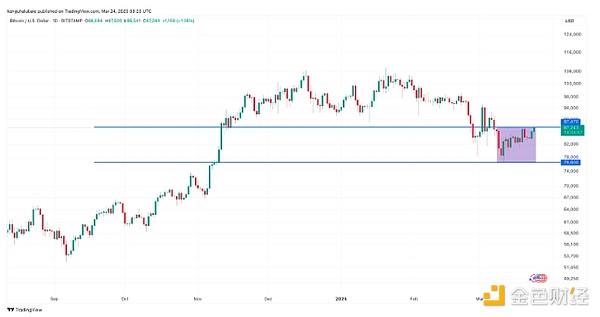
XRP/USD daily chart. Source: Cointelegraph/TradingView
BTC Price Must Recover to $90,000 to End Consolidation
A prominent crypto analyst suggests that Bitcoin may continue to consolidate in the current range, especially if $90,000 cannot be reclaimed.
Market analyst Daan Crypto Trades stated in an X post on March 23:
BTC price has been "volatile" since March 11, failing to produce consecutive green or red candles within the daily timeframe.
Once the price returns to the previous range (above $90,000), sentiment and momentum will become favorable for bulls.
If this happens, "new highs will be made soon".
If not, there is a possibility of retesting the "2024/summer consolidation" between $73,000 and $74,000, which should at least provide some support.
"Currently, the price is essentially at a midpoint level."
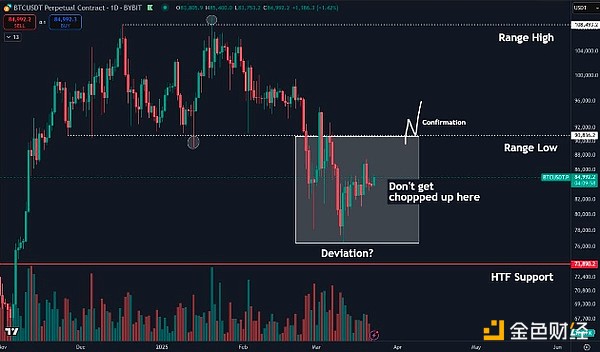
BTC/USD daily chart. Source: Daan Crypto Trades
Analyst Jelle echoed the same sentiment, stating that Bitcoin's current consolidation cycle may persist until the price breaks through $90,000.
"Breaking this point will make things very, very good again."
For analyst Rekt Capital, Bitcoin's weekly close must be above $88,000 to confirm a higher breakout.
In an article on March 24, the analyst noted:
Bitcoin is about to retest the resistance provided by the 21-week Exponential Moving Average (EMA) (green), which is the top of a triangular market structure formed by the 21-week and 50-week EMAs.
BTC needs to close weekly above the green EMA at $88,400, then retest to confirm a breakout above $93,500.
A similar price movement occurred in 2021, when Bitcoin's weekly close exceeded $40,000, and the following week's candle retested that level before moving upward.
"If history repeats, such fluctuation near the 21-week EMA would not be surprising."
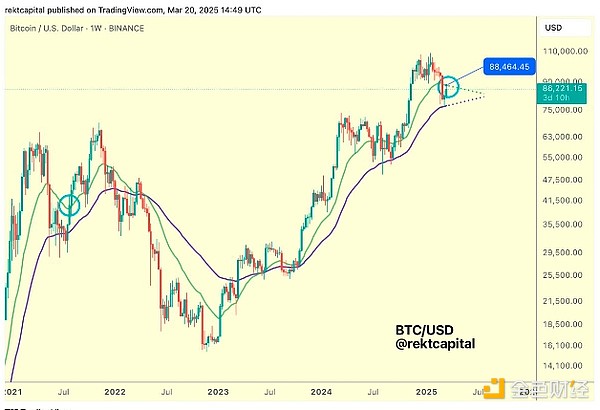
BTC/USD weekly chart. Source: Rekt Capital
BTC Funding Rates Remain Subdued
One of the most obvious signs that Bitcoin's future price movement will be more volatile is its negative funding rates in the futures market and decreased open interest (OI).
Key points:
Funding rates are periodic payments between long and short traders in perpetual futures contracts to keep the price aligned with the spot market.
When the metric turns negative, shorts pay longs, indicating bearish sentiment.
BTC funding rates are around 0%, indicating market hesitation.
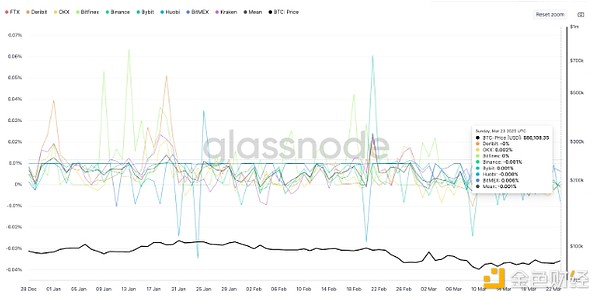
BTC Perpetual Futures Funding Rates across all exchanges. Source: glassnode
When funding rates are zero, holding costs are extremely low, reducing pressure on traders to exit long or short positions.
This can stabilize Bitcoin's price in the short term, as neither side pays a premium, suppressing volatility and leading to continued consolidation.
This may also signal accumulation before a potential rebound or distribution before another downturn.
Trading firm QCP Capital stated in a Telegram report to investors that despite Bitcoin's "mild rebound" over the weekend, breaking $85,000, "funding rates remain flat," adding:
"We remain cautious about prospects for a sustained upward breakthrough."
Bitcoin Price Consolidation Nearing End—Bollinger Bands
Bitcoin's volatility indicator shows increasing expectations of a BTC price breakout.
Key points:
Tightening Bollinger Bands suggest a breakout may be very close.
Weekly Bollinger Bands are at extremely oversold levels, touching its lower green line.
Bollinger Bands' width is as tight as during July 2024 to October 2024, when it consolidated between $63,000 and $69,000, creating a historical high.
Subsequently, BTC/USD rose 60% from $67,500 in October 2026 to the 2024 high of $106,000 in December 2024.
The indicator was similarly tight between June 2023 and September 2023, after which BTC price rose 176% from $24,400 to $73,800 on March 14, 2024.
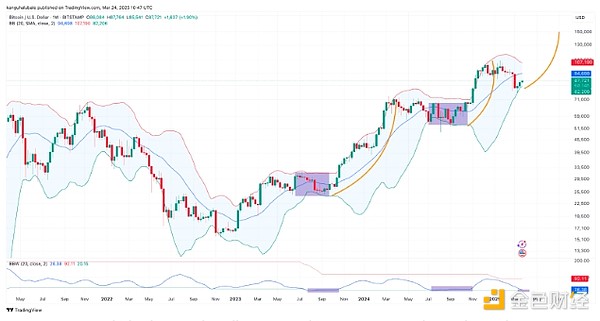
BTC/USD daily chart with Bollinger Bands. Source: Cointelegraph/TradingView
If history repeats, Bitcoin may quickly break out of its current range in the coming weeks.







